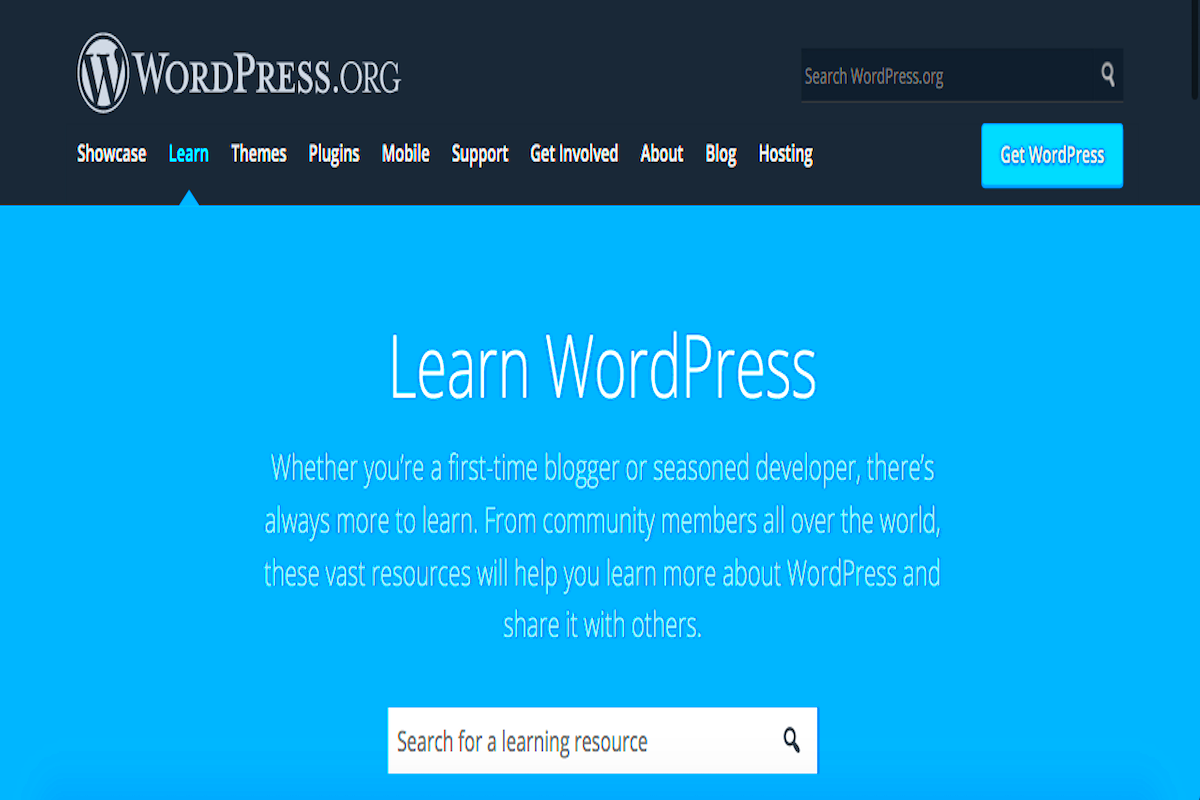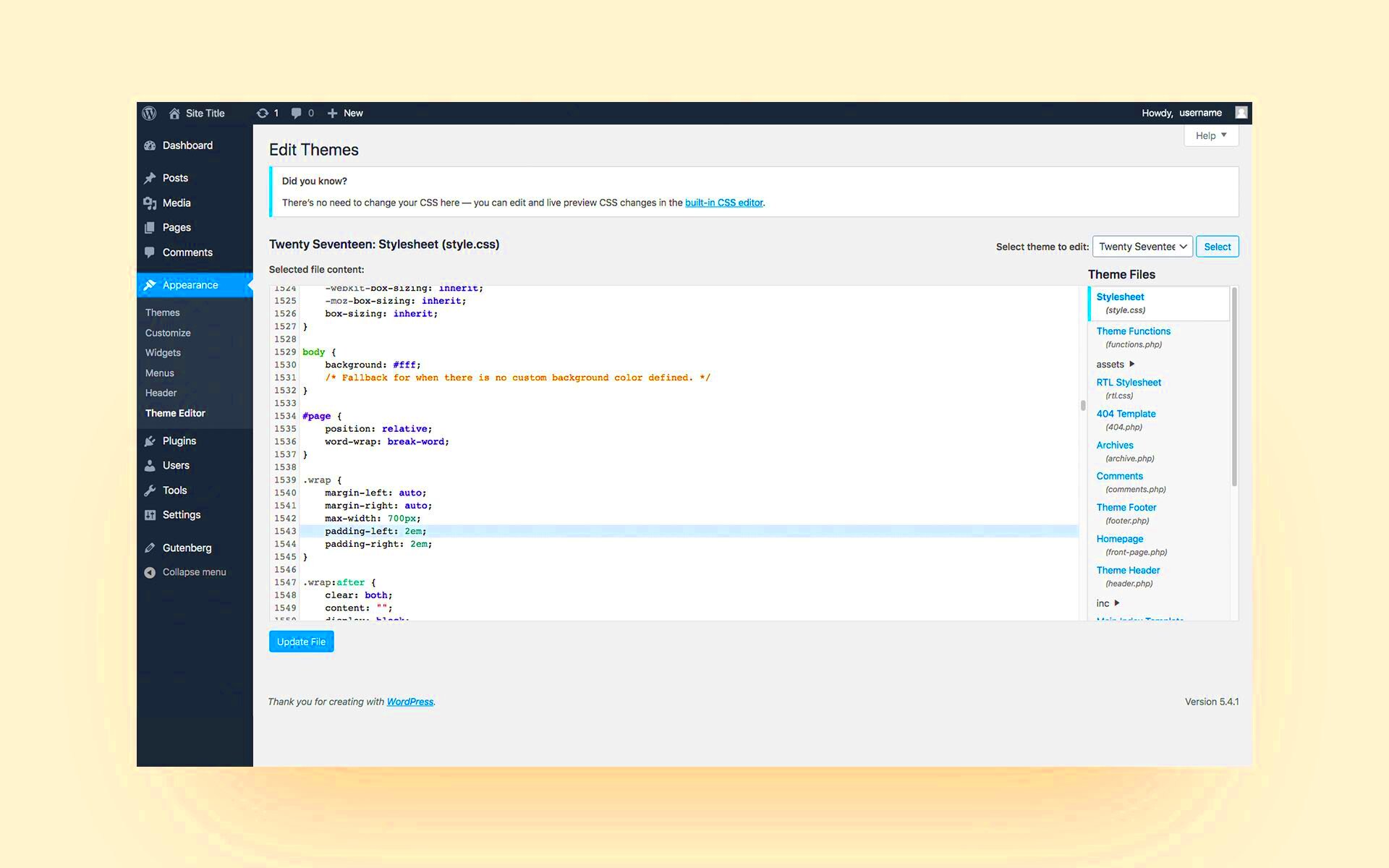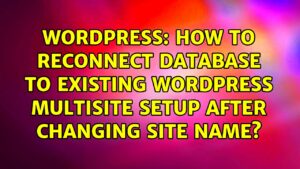WordPress is one of the most popular content management systems (CMS) in the world, powering millions of websites. It is known for its ease of use, flexibility, and wide range of customization options. Whether you’re looking to create a simple blog or a full-fledged business website, WordPress makes the process simple, even for beginners. The platform is open-source, which means it’s free to use, and its vast community offers tons of support and resources. This combination of accessibility and versatility is what makes
What Makes WordPress a Popular Choice for Websites?

There are several factors that make WordPress a popular choice for building websites:
- Ease of Use: WordPress is known for its user-friendly interface, making it easy for beginners to set up and manage a website without needing to know how to code.
- Flexibility: With thousands of themes and plugins, WordPress allows you to customize your website to fit any style or functionality. You can create anything from a blog to an online store.
- SEO Friendly: WordPress is built with search engines in mind, making it easier to optimize your website and rank higher on search engine results pages (SERPs).
- Security: WordPress regularly updates its core software to protect against vulnerabilities, ensuring that your website stays secure.
- Support Community: WordPress has a massive global community, which means you can find a wealth of tutorials, forums, and resources to help you with any issues you might face.
Can You Build a Website Using WordPress Without Any Coding Skills?

Yes, it is absolutely possible to build a website on WordPress without any coding skills. The platform has made it incredibly accessible to non-technical users through its intuitive interface and extensive customization options. Here are some ways WordPress helps you build a website without needing to code:
- Pre-made Themes: WordPress offers a large collection of themes that you can install and customize to fit your website’s needs. These themes come with built-in design options, so you don’t have to worry about coding a layout from scratch.
- Drag-and-Drop Builders: Plugins like Elementor and WPBakery allow you to build your site by simply dragging and dropping elements. This eliminates the need to write any code.
- Customizable Widgets: WordPress allows you to add and customize widgets to enhance the functionality of your site, such as contact forms, image galleries, and social media feeds.
- Plugins for Functionality: You can install plugins to add features like e-commerce, SEO tools, and more, without touching a line of code.
Even if you don’t know how to write HTML, CSS, or JavaScript, WordPress provides the tools to build a fully functional, aesthetically pleasing website.
The WordPress Interface: User-Friendly for Beginners
One of the key reasons why WordPress is so popular among beginners is its intuitive interface. When you first log in, you’re greeted with a clean, easy-to-navigate dashboard. You don’t need to be a tech expert to get started—WordPress offers a point-and-click interface that makes it simple to create pages, write blog posts, and upload media.
Here’s a quick look at the main components of the WordPress interface:
- Dashboard: This is the central hub where you can access everything related to your site, from creating content to adjusting settings.
- Posts & Pages: You can easily add new content to your site. Posts are typically for blogs, while pages are for static content like About Us or Contact pages.
- Media Library: All your images, videos, and other files are stored here for easy access and management.
- Customization Options: WordPress provides built-in themes and design customization options to change the look of your site without needing to write any code.
Thanks to these features, even if you’re new to website creation, you can quickly get a site up and running without a steep learning curve.
Tools and Plugins to Make WordPress More Accessible for Non-Coders
WordPress is a powerful platform, and its real strength lies in its vast collection of plugins and tools. These tools help even non-coders build sophisticated websites easily. Here’s a rundown of some essential tools and plugins that make WordPress more accessible for those with limited or no coding knowledge:
- Page Builders: Tools like Elementor and WPBakery allow you to drag and drop elements to create custom layouts without touching a line of code.
- SEO Plugins: Plugins like Yoast SEO or Rank Math guide you through optimizing your site for search engines, helping you rank better without needing advanced SEO knowledge.
- Security Plugins: Tools like Wordfence and iThemes Security help protect your site from hackers and malware, making security easier for beginners.
- Backup Plugins: Plugins such as UpdraftPlus let you create automatic backups, ensuring that your website’s data is safe, even if something goes wrong.
- Performance Plugins: Speed is crucial for websites. Plugins like W3 Total Cache or WP Super Cache help optimize your site’s loading times with just a few clicks.
These plugins help streamline the process of building and maintaining a WordPress site, making it simple for non-coders to create professional-looking websites with powerful features.
Benefits of Using WordPress Without Learning Code
Many people are hesitant to build websites because they think they need to learn how to code. But WordPress makes it possible to create a functional and attractive website without any coding knowledge. Here are some of the benefits of using WordPress without learning code:
- Time-Saving: Without the need to learn HTML, CSS, or JavaScript, you can focus on creating and managing content rather than worrying about technical details.
- Cost-Effective: Hiring a developer to build a website can be expensive. With WordPress, you can create your own site at a fraction of the cost.
- Flexibility: Even if you don’t know how to code, you can still add new features to your site through plugins. This allows you to customize your site to suit your needs without writing code.
- Quick Setup: With ready-to-use themes and plugins, setting up a WordPress website takes much less time compared to starting from scratch with custom coding.
- Support and Community: WordPress has an enormous community of users and developers. If you ever run into a problem, it’s easy to find solutions, tutorials, or professional help to solve issues without needing to code yourself.
Using WordPress without coding skills gives you the flexibility to manage your website efficiently, while still taking full advantage of the platform’s features and customization options.
Common Challenges When Using WordPress Without Coding Knowledge
While WordPress is designed to be beginner-friendly, there are still some challenges that users without coding knowledge may face. Here are some of the common hurdles you might encounter:
- Customization Limitations: WordPress offers a lot of pre-designed themes, but these might not always meet your exact needs. Without coding skills, you may find it difficult to make deep customizations to your site’s design.
- Plugin Overload: There are thousands of plugins available, but choosing the right one for your needs can be overwhelming. Moreover, some plugins may conflict with each other or with your theme, leading to functionality issues.
- Speed and Performance Issues: Websites built with too many plugins or poorly optimized themes can slow down. Fixing performance issues often requires some technical know-how, which can be a challenge for non-coders.
- Security Concerns: Although WordPress is generally secure, it can be vulnerable if not properly maintained. Regular updates are essential, and some users may struggle with updating themes or plugins without help.
Despite these challenges, most of them can be overcome with a little learning and the use of helpful resources, such as WordPress tutorials or support forums. However, if you’re not comfortable handling these issues yourself, it might be worth considering hiring a professional.
Frequently Asked Questions About Using WordPress Without Coding Skills
Many beginners have similar questions when starting with WordPress without coding knowledge. Here are answers to some common queries:
| Question | Answer |
|---|---|
| Can I build a website without knowing how to code? | Yes, WordPress is designed to be easy to use, and you don’t need coding skills to create a functional website. Most tasks can be done using its visual editor and drag-and-drop features. |
| How do I choose a theme? | WordPress offers thousands of free and premium themes. Look for one that suits your site’s purpose, is responsive (mobile-friendly), and is highly rated by users. |
| Are plugins safe to use? | Most plugins are safe and useful, but always check their ratings, reviews, and the date of the last update before installing. Keep your plugins updated to ensure compatibility and security. |
| How do I make my website more secure? | Keep your WordPress installation, themes, and plugins updated. Use a security plugin, enable two-factor authentication, and regularly back up your website. |
Conclusion: Is WordPress Right for You if You Don’t Know How to Code?
If you’re a beginner looking to create a website without diving into coding, WordPress is definitely a great option. Its user-friendly interface, customizable themes, and vast selection of plugins make it accessible to people with no technical background. While you may face challenges such as choosing the right plugins or customizing your design, these can usually be solved with a bit of learning or by seeking professional help when necessary.
Ultimately, WordPress allows you to focus on content creation, which is the most important part of any website. So, if you’re willing to put in a little time to learn, WordPress can be the perfect solution, even if you don’t know how to code.



